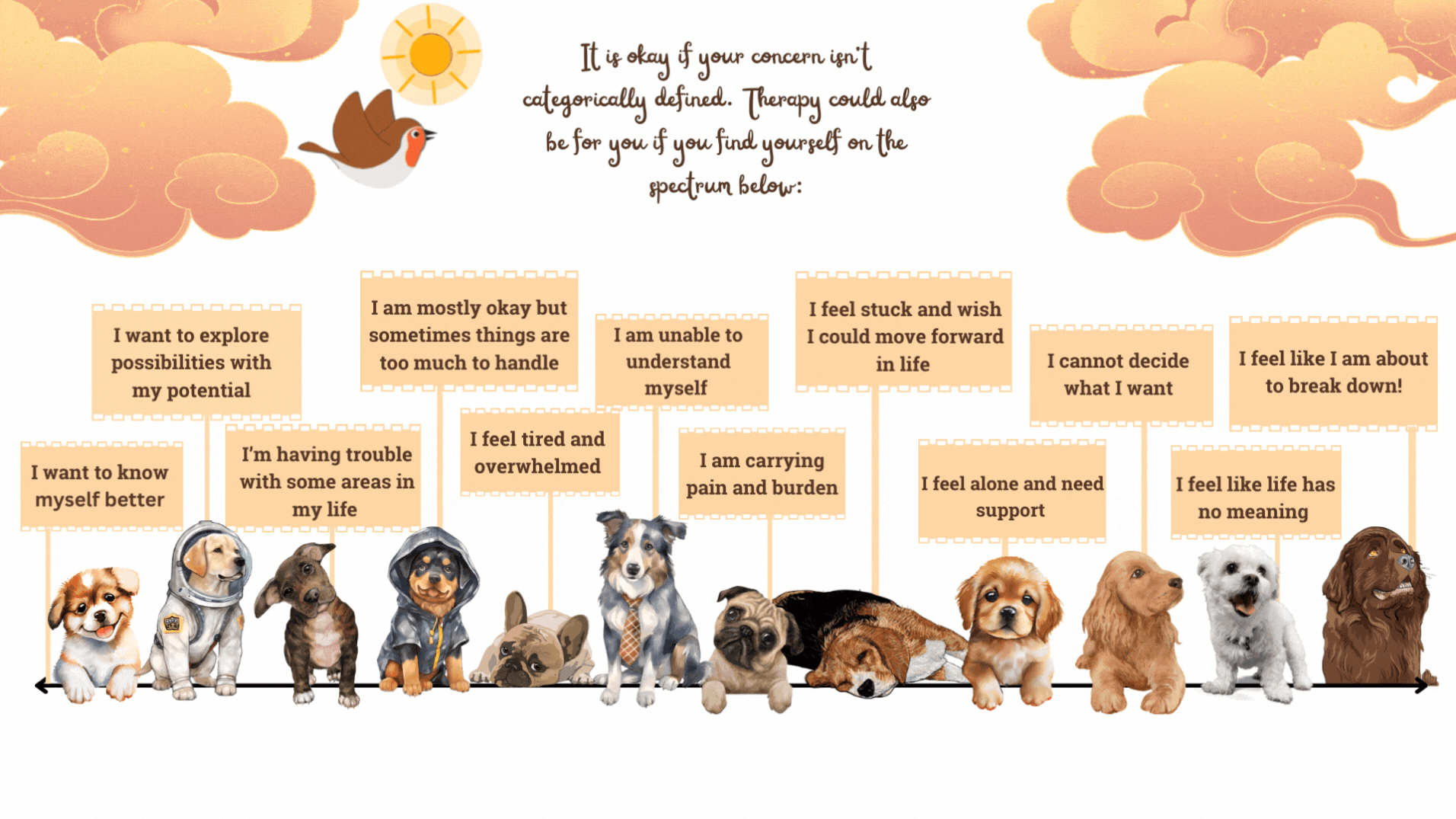
In my practice, I provide a compassionate and supportive space to help individuals navigate various life challenges and emotional difficulties. My approach is centered on understanding each person’s unique context and experiences, rather than labeling or defining them by a condition.
Here are some of the areas I can help with:
Helping you navigate feelings of anxiety and stress, building resilience through personalized strategies and mindfulness practices.
Providing support for understanding and managing fluctuations in mood and daily functioning, by exploring underlying causes, patterns, individual experiences and developing emotional well-being.
Recognising experiences of low mood, thoughts of self-harm and feeling numb as responses to trauma or prolonged stress, offering compassionate presence to reconnect with emotions and regain a sense of vitality.
Helping you navigate and regulate intense emotions, fostering stable and healthy relationships, and understanding the sources of emotional numbing or volatility.
Specialized support for individuals experiencing post-traumatic stress and the effects of prolonged or repeated trauma, using trauma-focused approaches to foster healing.
Embracing and supporting diverse neurological experiences, while celebrating your unique strengths and perspectives. This is to support individuals who find themselves on a spectrum of neurodiversity- a natural variation in human cognition and experience.
Gently witnessing and healing attachment wounds, informed by attachment styles and betrayal trauma, while promoting secure relationships.
Support for goal-directedness, attention, activity levels, and organizational skills in ways that leverage your unique strengthsand abilities.
Assistance with addressing repetitive thoughts and behaviours, focusing on understanding their derivations and finding healthier resources to adapt.
Enhancing communication and resolving conflicts with partners, family, and friends, including support for intimate partner violence, in a safe and non-judgmental environment.
Providing a safe and supportive space to process the pain of loss, death, separation, bereavement, chronic illness and traumatic grief while understanding their impact on your life.
Building a stronger sense of self and exploring your identity in a supportive and affirming environment, helping you to embrace your truth.
Supporting individuals in developing a positive and healthy perception of their bodies, addressing societal pressures and internalized beliefs.
Addressing physical manifestations of emotional and psychological distress, exploring the mind-body connection to foster overall wellness.
Supporting you through significant life changes in your personal or professional life with confidence and clarity, helping you find new directions and purpose.
Fostering self-awareness and personal development to help you reach your innate potential, exploring new paths for growth and fulfillment.
Addressing age-related concerns such as loneliness, caregiver burden, and finding purpose in later life, with a focus on enhancing quality of life and well-being.
Assisting in making informed and confident decisions in various aspects of life, helping you navigate choices with clarity and confidence.
Offering a curious exploration and supportive inquiry of career paths and professional development, helping you align your work with your values and goals.
Supporting individuals dealing with academic pressures, challenges, and transitions, promoting resilience and success in educational pursuits.
Helping individuals achieve harmony and balance between their personal and professional lives, fostering overall well-being and satisfaction.
My work is mainly informed by and grounded in the following modalities, while I use a customised approach suited to your needs, comfort, safety and therapy goals: